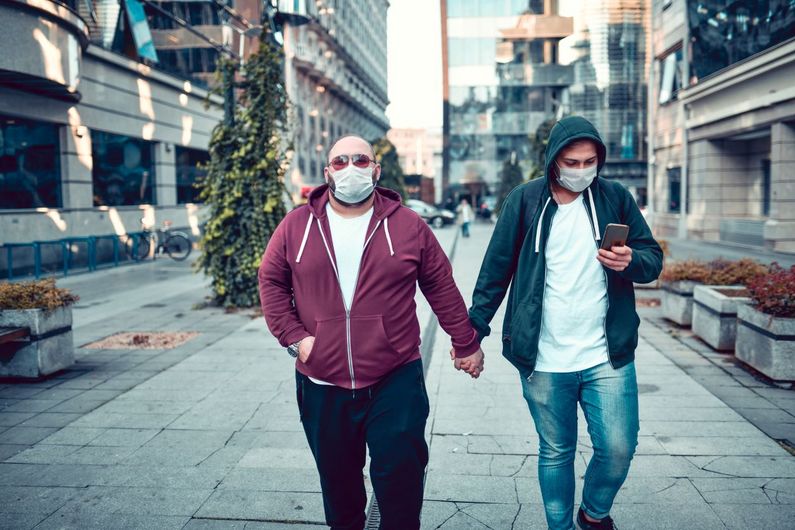COVID-19: the effect on the LGBTQ+ community
- UdeMNouvelles
11/02/2020
Through an online survey, a team led by UdeM professor Robert-Paul Juster is trying to find out how the pandemic is affecting LGBTQ+ people.
How do people’s sex, gender and sexual orientation affect their adaptation to the COVID-19 crisis?
That’s what Robert-Paul Juster, a professor in the Faculty of Medicine of Université de Montréal and researcher at the Institut universitaire en santé mentale de Montréal, would like to know.
With the help of UdeM psychology student Silke Jacmin-Park, Juster and his team are launching an online questionnaire to identify the challenges experienced by the LGBTQ+ community during the pandemic, as well as the resilience factors that protect them from adverse consequences on their mental health.
In an interview, Juster explains.
Why this survey?
The crisis we're experiencing forces us to address these issues for a simple reason: in addition to being a danger to the health of individuals, this pandemic has the potential to exacerbate certain inequalities that exist between men, women and people of sexual and gender diversity. Our anonymous and confidential online questionnaire will be used to shed light on the situation.
Who can complete this survey?
This study is open to everyone, not just the LGBTQ+ community. In order to better understand how sex, gender and sexual orientation affect individuals' adaptation to the crisis, it is necessary to survey the entire population. In particular, we need many more men in our study.
Why focus on the challenges of LGBTQ+ people during the pandemic?
In Canada, LGBTQ+ people are particularly vulnerable to the consequences of social isolation. These are people who are twice as likely to live alone as heterosexual Canadians, and who are at high risk for anxiety, depression, suicidal behaviour, self-harm and substance abuse. In sum, LGBTQ+ people are more vulnerable to increased mental health problems than heterosexual and cisgendered people during the current crisis.
But there are also some who demonstrate a capacity for resilience?
Yes, we know that within this community, certain sub-groups who have experienced stigma and adversity will adopt coping behaviours that promote resilience, and therefore have favourable levels of mental health. This would be explained by a concept called "crisis competence"
They manage crises better than others?
Yes, they can. It could be said that by virtue of their status, marginalized groups are sometimes forced to develop a capacity to manage crises in unexpected ways. It’s worth asking this of gay and bisexual men and the transgender community who experienced the HIV/AIDS crisis in the 1980s, for example: how are they dealing with the COVID-19 crisis? We want to examine whether crisis competence has a role to play in building resilience among some LGBTQ+ people.
When will we know the results of the survey?
Our preliminary results suggest that transgendered and non-binary people and bisexual and pansexual people report more symptoms of depression and anxiety compared to the general population. However, we need more participants before we can report the final results.
About the survey
Designed by the Centre d'études sur le sexe et le genre, l'allostasie et la résilience (CÉSAR), affiliated with the Centre de recherche de l'Institut universitaire en santé mentale de Montréal, and supported by the Fond de recherche Santé Québec, the online survey is for everyone but in particular men, women and people of sexual and gender diversity (LGBTQIA2+). The 13 questions take about 20 to 40 minutes to complete. Participation is voluntary and anonymous and the information collected will remain confidential.
Media contact
-
Jeff Heinrich
Université de Montréal
Tel: 514 343-7593














